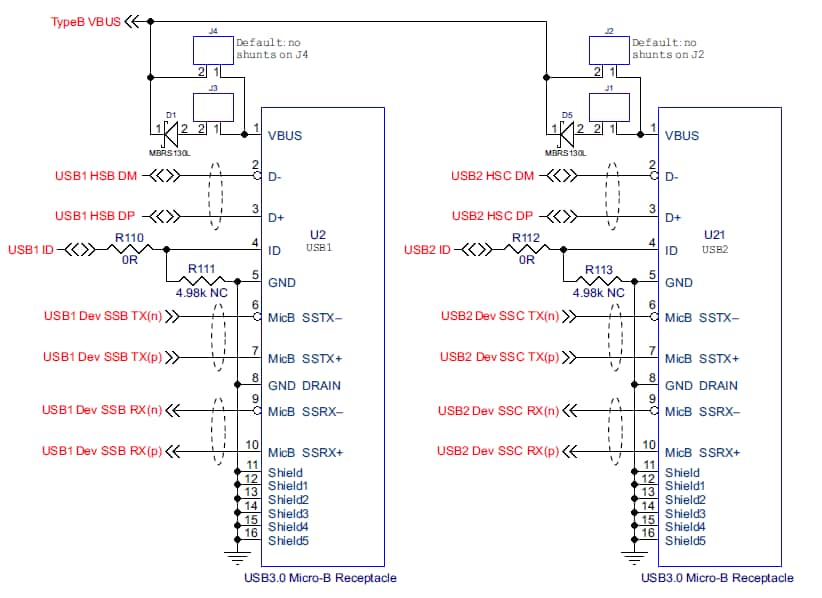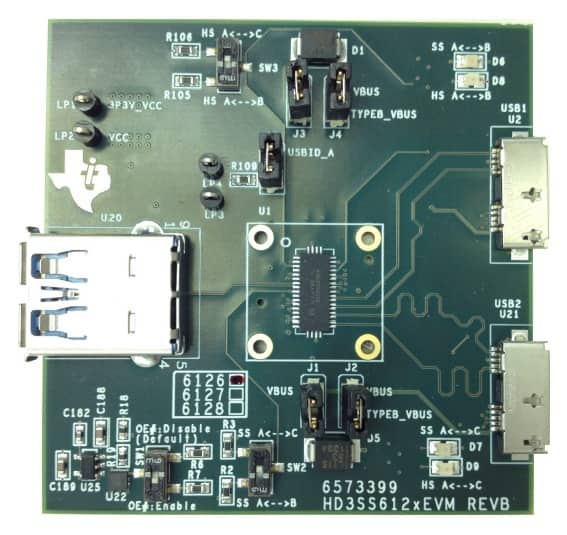HD3SS6126: USB 3.0 KVM Switch
Summary
This user's guide shows a USB 3.0 KVM switch application example of the HD3SS6126 device and provides recommendations for high-speed digital signal PCB design.
Use the HD3SS6126 evaluation module (EVM) board to select between one of two USB host systems for an USB device and to switch between two USB hosts. Figure 1 shows the KVM switch application. The bidirectional capability of the HD3SS6126 also supports applications that allow connections between two target devices and one source device, such as a shared USB 3.0 host between two USB 3.0 devices.
USB 3.0 has additional differential TX and RX super-speed signal paths in addition to the USB 2.0 signal path. USB 3.0 always tries to work in super-speed mode first, if the system super-speed path is connected well. Otherwise, it works in USB 2.0 mode. The HD3SS6126EVM manually selects different USB 3.0 paths according to demand. For the HD3SS6126EVM, USB 3.0 micro-B receptacles are employed on the host-side USB port, but a standard type-B receptacle is available, if desired. USB 3.0 standard type-A receptacle is used as the device-side USB port. The USB ports can be attached through a standard USB cable to any USB 3.0, or legacy USB host, hub, or device. However, a legacy USB cable forces the system to use high-speed operation.
Specifications
| Manufacturer | Texas Instruments |
|---|---|
| Category | Wired Communication |
| Sub-Category | Interface Solutions |
| Eval Board Part Number | 296-37207-ND |
| Eval Board Supplier | Texas Instruments |
| Eval Board |
Normally In Stock
|
| Purpose |
USB 3.0 Switch
|
| Component Count + Extras |
-
|
| Features |
Differential Inputs
USB Interface |
| Data Rate (Max) |
Up to 10 Gbps
|
| Design Author |
Texas Instruments
|
| Main I.C. Base Part |
HD3SS6126
|
| Date Created By Author | 2013-10 |
| Date Added To Library | 2014-05 |





